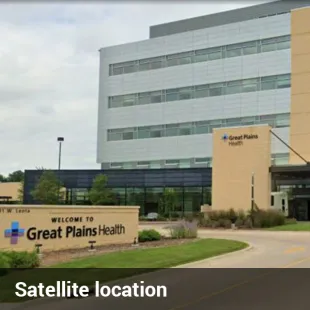There are many causes of kidney disease (also called nephrology). While there are some inherited kidney diseases, as well as some that occur sporadically, the majority of chronic kidney disease is caused by other health conditions like diabetes and high blood pressure.
You can prevent or delay the development of chronic kidney disease by eating a healthy diet, reducing your sodium intake, not smoking, maintaining a healthy blood pressure level and controlling your blood sugars if you have diabetes.
If you know you are at risk for kidney disease, you should be working with your doctor to get optimal control of your risk factors.
You also should be screened annually for kidney disease with a urine test, blood test and blood pressure reading. Kidney disease does not produce symptoms until it has reached advanced stages. Once you have kidney disease, it is typically progressive but can be slowed through lifestyle modifications and medications. Individuals who progress to advanced stages of kidney disease may need dialysis and/or a kidney transplant.
Thanks to our academic partner the University of Nebraska Medical Center, Nebraska Medicine's kidney specialists are some of the best in the region when it comes to treating kidney disease including renal failure, kidney stones, electrolyte disturbances such as hypertension as well as hematuria and proteinuria. We are also home to one of the most active and successful kidney transplant programs in the country.
Why come to Nebraska Medicine for treatment of your kidney disease?
Multiple Specialists Care for You
At Nebraska Medicine, you will be seen by a multidisciplinary team of doctors who will work together with our kidney specialists (called nephrologists) to determine the cause of your kidney disease and the best course of treatment for you. Some of the most common kidney diseases include diabetes mellitus - Type I and II, hypertension, inherited kidney diseases, glomerulonephritis or side effects due to medications. Treatment may include medication, inpatient dialysis, outpatient dialysis or surgery. For some patients, kidney transplant may be a treatment option. Nebraska Medicine is home to a world-renowned kidney transplant program where several kidney transplant options exist.
Dedicated Diabetes Center
The Diabetes Center at Nebraska Medicine combines clinical care, counseling, education and research to find better ways to prevent and treat diabetes. Much of our program focuses on education and self-management of the disease to teach you the skills you need to be successful at managing your disease. The center is the only one of its kind in the Omaha and Council Bluffs region dedicated to providing comprehensive care for diabetes patients from a multidisciplinary team of specialists.
World-Renowned Kidney Transplant Program
Founded in 1970, the kidney transplant program at Nebraska Medicine performed the first kidney transplant in Nebraska. The kidney transplant program has become widely recognized as one of the most active and innovative kidney and pancreas transplantation centers worldwide. The program is a leader in adult, pediatric, living-donor transplants and laparoscopic kidney procedures and consistently achieves graft and patient survival rates higher than national averages. One of the biggest challenges with kidney transplant patients is the chronic diseases many of these patients develop as a result of diabetes and hypertension. Our program includes a dedicated team of multi-disciplinary health care professionals who will ensure appropriate care before, during and after the transplant. This is especially critical to this group of patients due to the multiple health issues many of them bring with them.
Our Locations
-
 Grand Island Health Center Image
Grand Island Health Center Image
-
 Internal Medicine Specialties at Durham Outpatient Center Image
Internal Medicine Specialties at Durham Outpatient Center Image
Internal Medicine Specialties at Durham Outpatient Center
4400 Emile St.
Get Directions
Omaha, NE 68105 -
 Nephrology at Shenandoah Medical Center Image
Nephrology at Shenandoah Medical Center Image
-
 Nephrology at Village Pointe Health Center Image
Nephrology at Village Pointe Health Center Image
-
 Outpatient Services at Great Plains Health Image
Outpatient Services at Great Plains Health Image
Outpatient Services at Great Plains Health
611 W Francis St., Suite 200
Get Directions
North Platte, NE 69101 -
 Vascular Surgery Clinic at Columbus Community Hospital Image
Vascular Surgery Clinic at Columbus Community Hospital Image
Vascular Surgery Clinic at Columbus Community Hospital
4600 38th St
Get Directions
Columbus, NE 68601
Highly Ranked Care
Nebraska Medicine is ranked among the nation’s best. Each year, U.S. News and World Report surveys the nation’s roughly 5,000 hospitals to come up with the year’s list of Best Hospitals. Just three percent of the hospitals analyzed for Best Hospitals earn national ranking in even one specialty. We've been recognized as a high-performing hospital in nephrology in the 2012, 2014, 2016, 2017, 2018 and 2020 by U.S. News & World Report Best Hospitals rankings.
We've been recognized as a high-performing hospital in kidney failure in 2021 by U.S. News & World Report Best Hospitals rankings.
